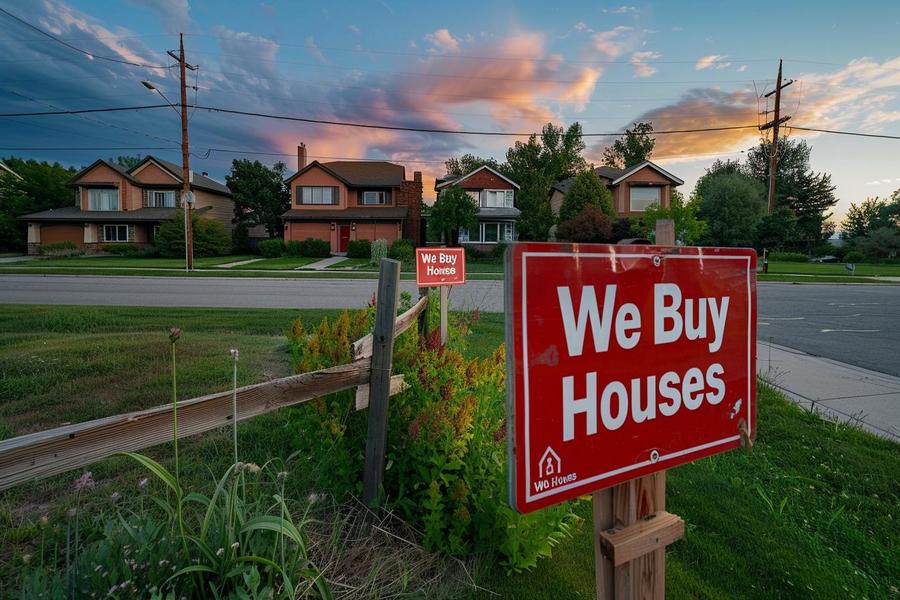Thinking of selling your house to rent? You're not alone. Many face this choice, especially when aiming for a simpler life or financial flexibility. This guide dives into the crucial pros and cons. We'll explore costs, lifestyle impacts, and if it's really smarter than owning. Whether you're retiring, moving cities, or dodging market crashes, get ready for clear insights to make your decision easier. Let's break down the facts without the fluff.
TL;DR:
- Selling your home frees up cash but incurs costs and potential capital gains tax.
- Renting might seem cheaper but doesn't build equity, and rental costs can increase.
- Long-term profitability depends on market trends and personal lifestyle needs.
- Renting out your home can offer income and avoid foreclosure, especially in market crashes.
- Downsizing by renting reduces upkeep but might limit personal space and lifestyle.
- Hidden costs of renting include lost equity and potential higher monthly expenses.
- Renting in retirement can reduce maintenance and tax burdens, offering financial stability.
- Becoming a landlord for extra income involves time, effort, and potential legal issues.
- Use online tools and consult real estate professionals to make informed decisions on renting vs. selling.
Is It Financially Smarter to Sell Your House and Rent?
What Are the Financial Implications of Selling Your Home?
Selling your home frees up cash. This is good if you need money for retirement or other plans. But remember, you might pay a tax on any profit you make. This is called capital gains tax. You should talk to a tax pro before you decide.
Comparing Costs: Selling Your House vs. Renting
Let's look at costs. If you sell your house, you face fees like agent commissions and might have to do repairs. These can eat into your sale price. Renting might seem cheaper month to month, but rents can go up. You don't build equity in a rental.
Rent or Sell: What's More Profitable in the Long Run?
Long-term profit can vary. If your home's value keeps going up, keeping it could be smarter. You can sell it later for more money. But if you're eyeing a stress-free life without home upkeep, renting might be better despite losing out on potential property value increases. It really depends on your financial situation and lifestyle needs.
Each choice has its financial ups and downs. Consider what fits your life right now and what you want for your future. This is a big decision, so take your time to think it over. A real estate expert can help you make a smart choice.
When Should You Consider Renting Over Selling?
Navigating Market Crashes: Sell or Rent Out Your House?
When markets crash, consider renting out your house. This move can shield you from the quick loss of value. Check rental demand in your area. If it's high, renting could be better.
Avoiding Foreclosure: Is Renting a Better Choice?
Yes, renting out your house can help you avoid foreclosure. It turns your home into an income source. This helps you keep up with mortgage payments.
How to Determine If Renting Your Home Is a Good Financial Move
First, understand your local rental market. If demand is high, it could be wise to rent out. Review the costs of renting versus selling. Homelight can offer insights into this dilemma.
Here's a deeper look:
Market Crashes: Renting out could offer stability in uncertain real estate markets. It allows property value recovery over time.
Foreclosure Avoidance: By renting, the rental income could cover mortgage dues that might otherwise lead to foreclosure.
Financial Assessment: Calculate potential rental income and weigh it against ongoing mortgage and maintenance costs. Also, consult professionals to gauge market conditions and get a reliable estimation.
Related Links:
–Selling House for Job Relocation: Key Steps
–How To Sell Rental Property: A Simple Guide
How Does Selling to Rent Affect Your Lifestyle?
The Pros and Cons of Downsizing by Renting
When you downsize by renting, you free up cash. This is great for other uses. You also face less upkeep. But, you lose personal space. Sometimes, you miss out on making changes to your place.
Relocating: Is Selling Your House and Renting Feasible?
Relocating can mean new job chances or lifestyles. When you sell your house and rent, you can move easily. Places like Houston or Tampa offer different living costs. See if renting feels right here.
Renting for Flexibility: Selling Your Home to Rent for a Short Period
Renting for a year gives room to decide next steps without rush. You learn the new area or life without long deals. This choice suits you if unsure about settling yet. Make sure to think on this option well.
What Are the Hidden Costs of Renting After Selling?
Understanding Rental Expenses After Selling Your Home
Before you pack your bags and rent in retirement, consider rental costs. When you sell and rent, remember that your rent goes into another owner’s pockets. It means each dollar you pay could have gone to your own equity. Rentals also come with deposits, possibly higher monthly costs compared to a mortgage, and non-fixed rent prices. Surprise costs like repairs, if not covered by your landlord, could surprise you.
The Emotional and Financial Strain of Moving Twice
Moving twice stresses both your wallet and your heart. First selling, then renting, forces you to move multiple times. Each move requires money for movers, time for packing, and immense effort setting up a new home. Every new lease or move could mean different schools or a longer commute. Considering this decision impacts your daily life and financial future deeply. Exploring all potential costs and emotional impacts can save you future headaches and financial strain.
Can Renting Offer More Stability in Retirement Than Owning?
Maintenance and Taxes: The Benefits of Renting in Retirement
Renting means less stress about upkeep. You won't fix roofs or mow lawns. You have no property tax bills to pay. This can save money, easing your retirement budget concerns. Yes, property taxes can often be a heavy burden, but as a renter, that's no longer on your plate. Learn more about property taxes here.
Assessing Retirement Stability: Renting vs. Home Ownership
Does renting offer more stability in retirement? It can, based on your needs. If you value flexibility over fixed roots, or if you're financially stretched by home maintenance or taxes, renting may ease these burdens. However, life in your own house has different merits like emotional attachments and potential investment benefits. Without maintenance or property taxes, renting can indeed seem more stable from a financial and logistical standpoint. It frees you from the unpredictable costs associated with aging property. This does not mean owning is a poor choice, but it demands more from you physically and financially. Renting suits those who prioritize simplicity and surety in their spending.
Should You Consider Renting Out Your Property Instead of Selling?
Calculating Your Potential: Rent Out or Sell Your Property?
Should I sell my house or rent it out? This is key to decide. Use an online calculator for a detailed look at potential profits and costs.
Renting out could mean steady income. You must check local rental rates first. They tell if renting out beats selling in the long run. But remember, being a landlord involves more than just collecting rent. Check this guide to learn what it takes.
The Commitment of Being a Landlord: Is It Worth It?
Thinking about becoming a landlord? It’s a big decision. Being a landlord means dealing with tenants, repairs, and sometimes, legal issues. It’s not just about the extra income; it involves time, effort, and money. You must be ready for the responsibility.
For some, the effort is worth it. It can be a steady source of income and can help pay the mortgage. Plus, if property values rise, you could make a good profit later.
In cities with high rental demand, leasing might be more profitable than selling. In more stable neighborhoods, selling might give quicker, large cash benefits. It all comes down to your personal situation and financial goals. Think about your long-term plans, and how active you want to be in managing property. It’s not just a financial decision; it’s a lifestyle choice too.
Making the Decision: Expert Advice and Tools to Guide You
How to Use Online Tools and Calculators for Decision Making
When deciding to sell your house and rent, use online tools. They help compare the costs of selling your home against the potential rent fees. Websites like Rocket Mortgage offer calculators that can break down these numbers for you, making it easier to see which option might suit your budget better. By inserting your current home's value and the potential sell price, you see what you might gain or lose.
The Importance of Consulting With Real Estate Professionals
Consult a real estate agent to weigh your options more deeply. Real estate agents know the trends and can provide insights specific to your case—like the best time to sell or what you might encounter if choosing to rent. They work with these cases every day and understand the nuances of the market in particular areas, whether you're in bustling city centers like San Francisco or quieter, retirement-friendly communities like Sarasota.
Agents also highlight non-financial factors you might not consider, such as the demands of home ownership versus the responsibilities of being a tenant, or the impact of your decision on long-term financial planning. They can guide you to a decision that aligns with your personal life situation and financial goals.
We looked at selling your house to rent, weighing costs, lifestyle changes, and retirement. Deciding between selling or renting out your home needs careful thought. Consider market conditions, your financial goals, and lifestyle needs. Consulting professionals and using online tools can guide your choice. Remember, what works for one may not suit another. Make a choice that aligns with your life and financial plans.















